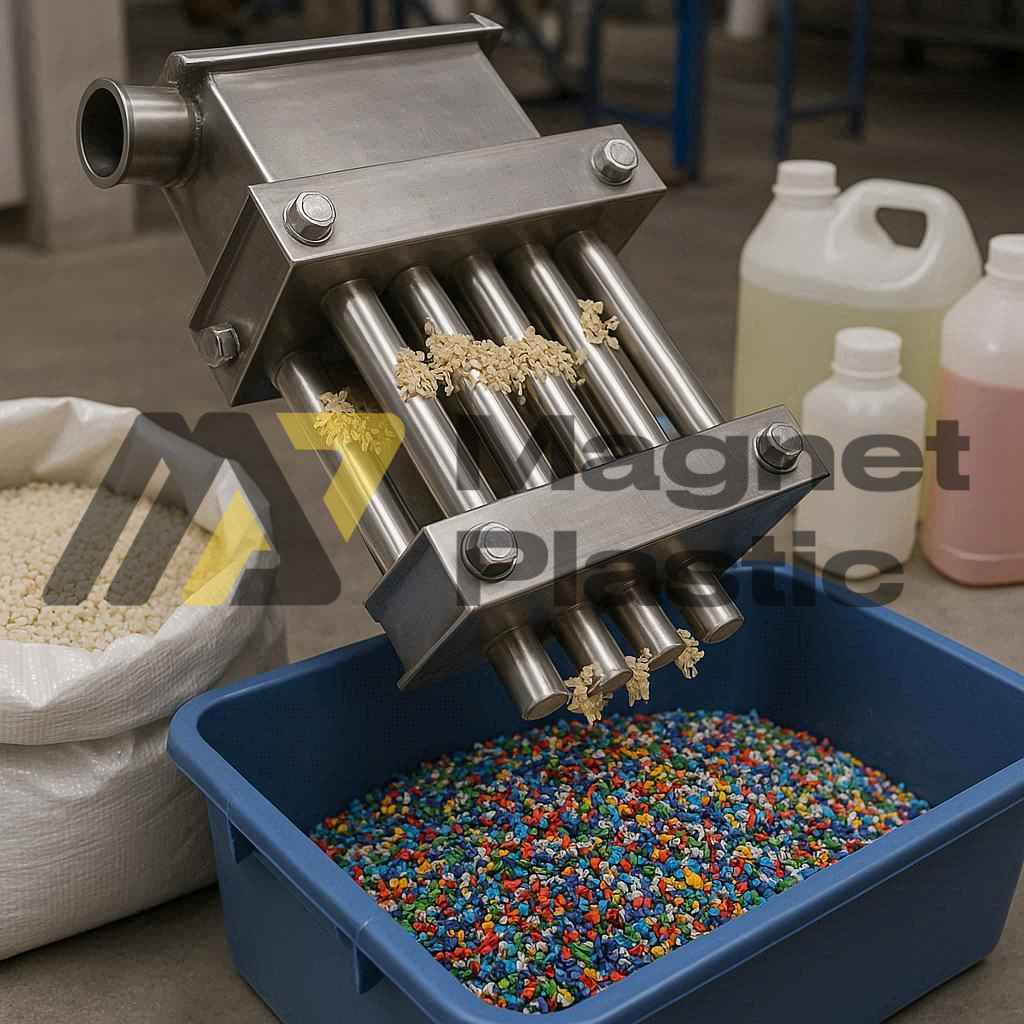Chemicals and Plastics: The Role of Magnetic Separation
In the chemicals and plastics industry, the presence of foreign metallic particles represents a constant challenge that can compromise the quality of raw materials and cause serious problems during production. These particles, often microscopic, are responsible for product defects, machine damage, and significant economic losses. To prevent these issues, the application of magnetic separation systems has become an essential solution, ensuring safer, more efficient, and more sustainable processes.
Metal contamination in chemicals
Metal particles can alter the chemical and physical properties of a product. For example, the presence of rust can cause discoloration in detergents and coatings, while in gas and oil processing they can cause damage during combustion in turbines or engines. In sensitive sectors such as batteries, even the slightest trace of metal can affect the conductivity of carbon black, reducing the efficiency of energy storage.
Magnetic filters are highly effective in this context, as they precisely remove magnetic particles, even those that are only weakly ferrous, from chemicals and catalysts. This not only protects product integrity but also prevents damage to expensive equipment and reduces downtime. Moreover, these systems are often self-cleaning and resistant to high pressures, making them ideal for continuous industrial processes.
Carbon black and the importance of purity
Conductive carbon black is a key material in the production of lithium-ion batteries, seals, coatings, electrodes, and tires. Due to its dry nature and poor flowability, it presents a challenge in manufacturing. The presence of metal particles in this material is critical, as it alters conductivity and compromises battery performance.
To ensure carbon black purity, self-cleaning rotary magnets are employed. Their design prevents material buildup and ensures constant contact with magnetic bars. These systems comply with international standards such as ATEX, allowing safe use in environments with explosion risks and elevated temperatures.
Metal contamination in the plastics industry
In the plastics industry, metal contamination may arise from both recycled raw materials and machine wear. These particles directly affect injection molding, extrusion, mixing, and crushing equipment, causing nozzle blockages, reduced cable insulation, and defects in finished products.
The consequences include production downtime, damage to molds and machines, rejection of entire batches, and in severe cases, delivery of products with undesirable characteristics. Installing magnetic separation systems at strategic points in the production line enables the detection and removal of impurities before they cause issues.
Conclusion
Magnetic separation in the chemicals and plastics industry is not merely a quality control measure, but a fundamental strategy for ensuring production efficiency, equipment safety, and raw material purity. By implementing advanced magnetic filters, companies can avoid economic losses, ensure product reliability, and meet the increasing demands of a market that requires ever-higher standards of quality and sustainability.
